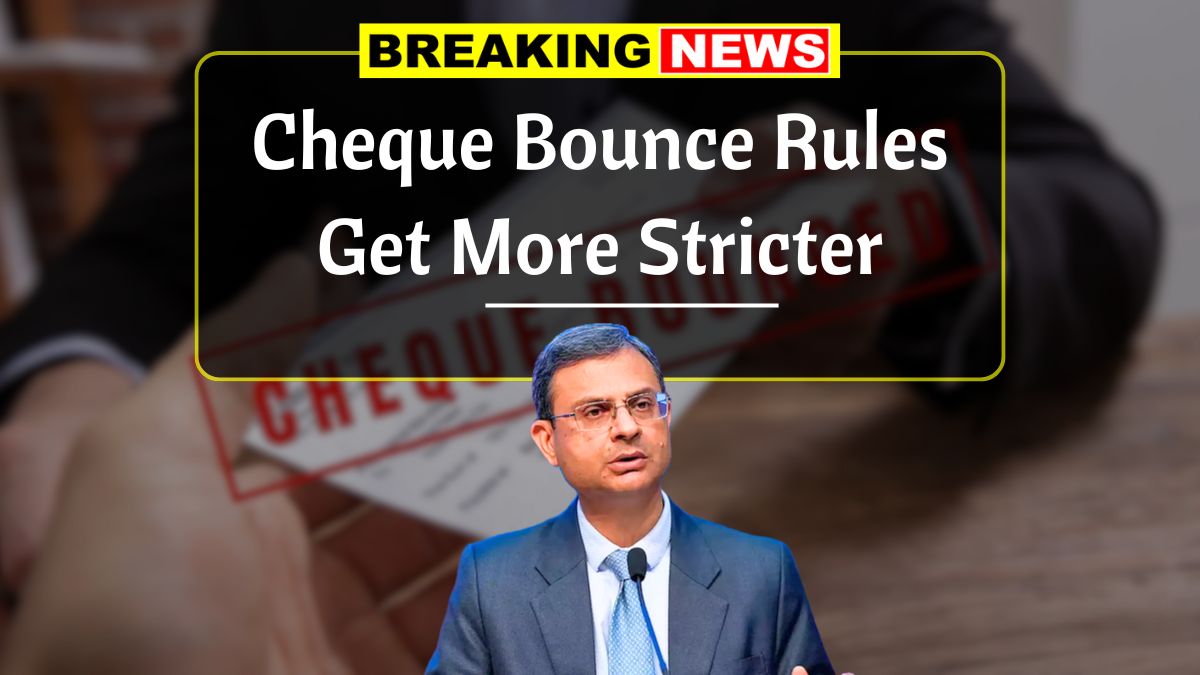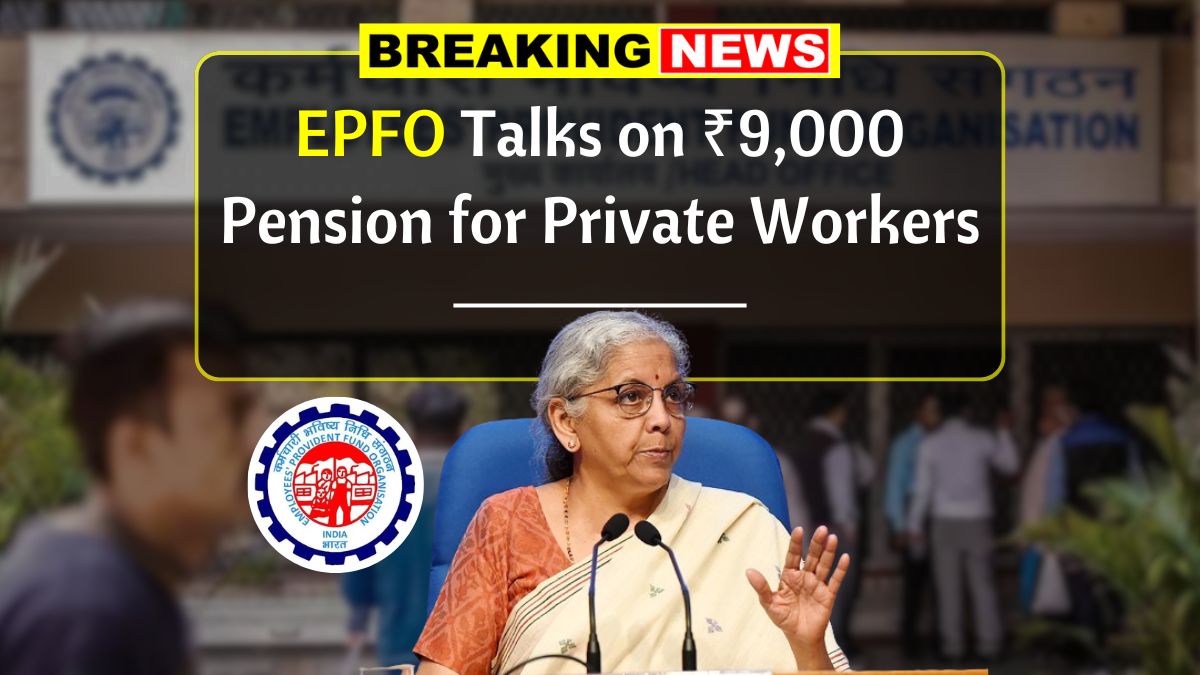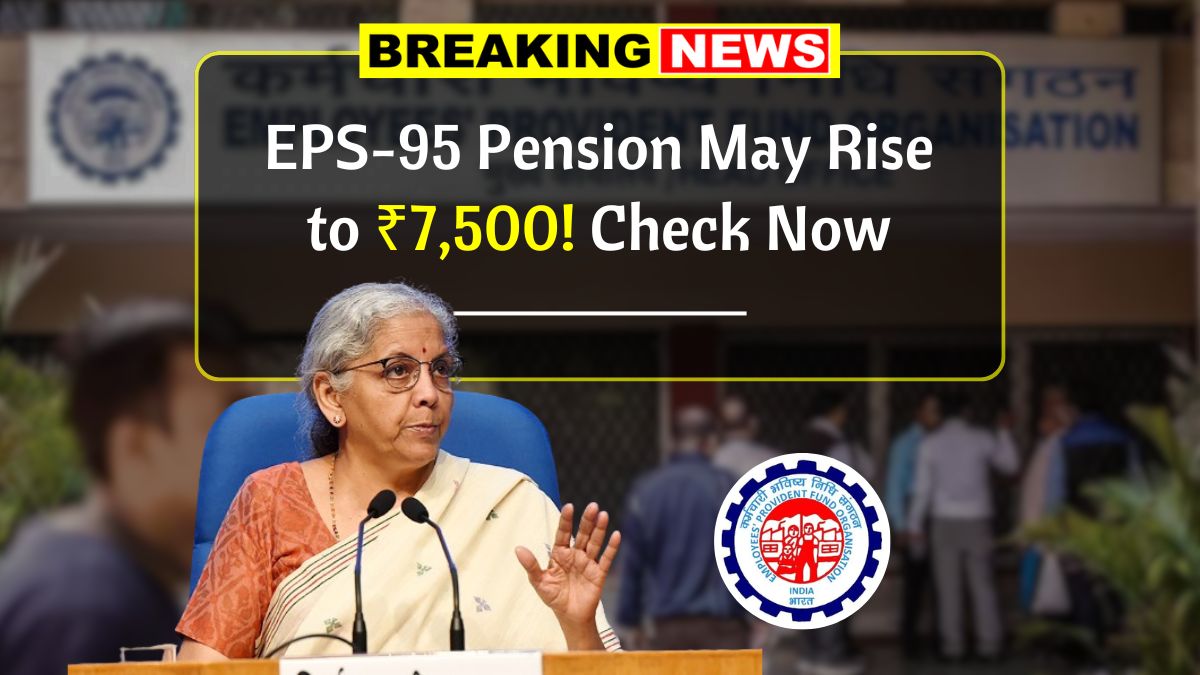New Cheque Bounce Rules 2025 – From 2025 onwards, handling cheques in India is going to be a lot more serious business. Gone are the days when a small error on a cheque might be overlooked. With new rules rolling out, even a single mistake could land you in trouble—and not just financially. These fresh regulations are all about bringing in stricter penalties, boosting financial responsibility, and making sure both individuals and businesses treat cheque transactions with utmost care.
So, if you write cheques or receive them, it’s time to stay alert. Let’s break it all down for you in a simple, easy-to-understand way.
What’s Changing in 2025?
The Reserve Bank of India (RBI), along with other financial bodies, has put together a new framework to cut down on the number of cheque bounces in the system. This comes after a steady rise in dishonoured cheques that have caused delays, financial disputes, and legal headaches.
Key Highlights of the New Rules:
- Immediate Alerts: Banks will now notify you as soon as a cheque bounces.
- Higher Penalties: Both the person writing the cheque and the person receiving it may have to pay penalties if things go wrong.
- Legal Trouble: Repeated cheque bounces could lead to legal cases and even jail time.
- Credit Score Takes a Hit: A bounced cheque now affects your credit history too—ouch!
- Bank Staff Training: Employees will be trained better to handle such cases smoothly.
- Digital Awareness Campaigns: The government is rolling out campaigns to educate people on how to avoid these issues.
- Advanced Tech Push: Banks are being nudged to use better tech tools to reduce human errors and fraud.
Why It Matters for Everyone
The cheque might be an old-school method in today’s UPI-dominated world, but it’s still widely used for salaries, property deals, vendor payments, school fees—you name it. That’s why these new rules hit home for just about everyone.
| Category | Businesses | Individuals |
|---|---|---|
| Notifications | Immediate alerts to help follow up | Real-time SMS/Email alerts |
| Penalties | Hefty fines for repeated issues | Financial setback for mistakes |
| Legal Action | Possible lawsuits and legal disputes | Court cases if not resolved |
| Credit Score | Can hurt business credibility | Affects loan eligibility |
| Training | Staff training programs | Awareness workshops |
| Tech Upgrades | Cheque-tracking software | Mobile banking tools |
| Awareness | Industry-specific seminars | Community education drives |
What Businesses Should Do
Running a business? Then you’ve got to be extra careful. Here’s how to stay ahead of the curve:
- Regular Internal Audits: Make sure your finance team is reconciling cheque transactions regularly.
- Train Your Staff: Conduct sessions on how to fill and handle cheques.
- Update Your Software: Invest in modern cheque management systems.
- Review Your Credit Terms: Tweak terms with vendors and clients based on these new rules.
- Be Transparent with Clients: Let your clients know how you’re adapting to the new regulations.
- Hire Legal Help: Have a lawyer on standby to deal with any unexpected legal actions.
What Individuals Should Know
For most of us, writing a cheque might be a rare event, but when we do, it must be done right. Here’s how to avoid future problems:
Tips to Prevent Cheque Bounces
- Keep enough balance in your account before handing over a cheque.
- Always double-check the date, name, amount (both in figures and words), and signature.
- Avoid overwriting or scribbling.
- Keep a record of cheques issued and received.
- Use digital payments when possible—less risky and more convenient.
If Your Cheque Does Bounce
- Act fast: Contact your bank as soon as you’re alerted.
- Rectify the issue: If it was a balance issue, deposit the money right away.
- Talk to the payee: Try to settle things amicably to avoid legal consequences.
- Learn from it: Understand what went wrong to prevent it next time.
- Know your rights: If you’re on the receiving end of a bounced cheque, you can take legal action under the Negotiable Instruments Act.
Banking Tech Is Getting Smarter
Banks are stepping up too. Here’s how new tech is helping prevent cheque issues:
| Technology | How It Helps |
|---|---|
| SMS/Email Alerts | Keeps you informed in real-time |
| Mobile Banking Apps | Lets you track all cheque transactions |
| AI Tools | Can detect fraud or formatting errors before processing |
| Digital Cheque Books | Reduces manual errors and enhances security |
| Blockchain Integration | Promises transparent and tamper-proof records |
Financial Literacy Is More Important Than Ever
With rules tightening, being financially aware isn’t just useful—it’s necessary. The government and banks are pushing for:
- Workshops and webinars on cheque handling and financial discipline
- Free online tutorials from major banks
- Community awareness drives in rural and urban areas
- Counselling services from financial advisors
- Regular updates on banking rules through SMS, news portals, and mobile apps
The cheque bounce rules coming into play in 2025 are a game-changer. Whether you’re running a company or just paying your landlord by cheque, it’s time to be extra cautious. With financial penalties, legal risks, and credit scores on the line, one wrong move could have lasting consequences.
But don’t panic. Stay informed, use digital tools, and follow basic financial discipline. After all, being responsible with your money is always a win.












